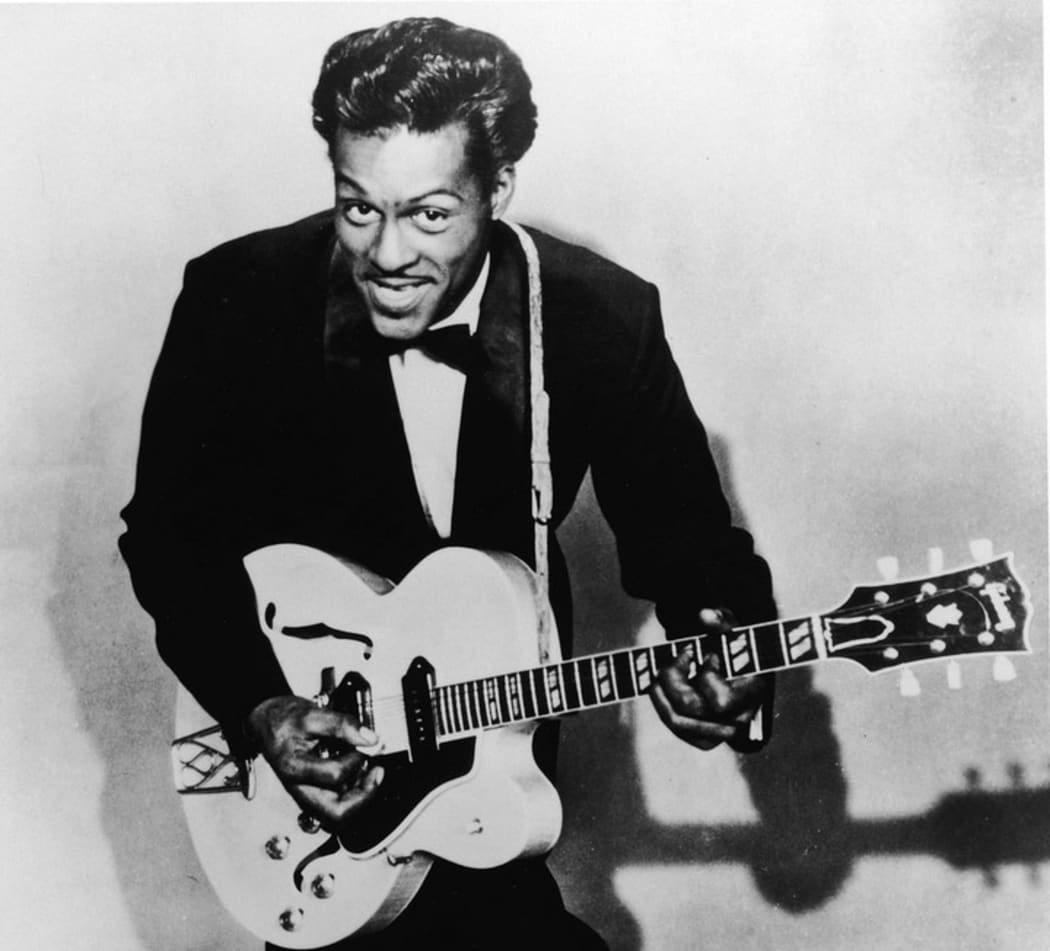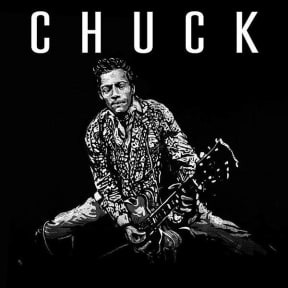
Chuck Berry Photo: supplied
Nick Bollinger discusses the swansong of rock'n'roll founding father Chuck Berry.
Some time before his death in March, aged 90, the great rock’n’roll original Chuck Berry completed one final album. It was his first new release in 38 years.

CHUCK Photo: supplied
Chuck wasn’t attempting any late-career style changes with ‘Big Boys’, the album’s first single. The song repurposes his famous ‘Johnny B. Goode’ riff for a wry ode to frustrated youth that he could have penned at any point in his career of six-plus decades. And there’s an even more shameless re-write in another song here, ‘Lady B. Goode’.
Still if tracks like these seem almost redundant, it’s only because Chuck did it all so thoroughly and influentially the first time around. If he didn’t actually invent rock’n’roll he certainly came up with its most convincing blueprint.
It’s not exaggerating to say that without Chuck Berry there could hardly have been a Beatles or a Rolling Stones, or not in an form we’d recognise. Even AC/DC built their edifice on Chuck Berry’s foundations, while lyricists from Dylan to Springsteen learned how to make words sing from Mr Berry.
His songs weren’t just the definition rock’n’roll - they were a celebration of rock’n’roll and the freedom it represented. The kid in ‘School Days’ waiting for three o’clock so he can get down to the juke joint. Or Johnny B Goode, the country boy whose guitar is going to take him out of rural Louisiana and put his name in lights.
‘I’m gonna write a little letter gonna mail it to my local deejay/it’s a rockin’ rhythm record I want my jockey to play.’
He loved language, and no one wrote rock’n’roll lyrics that rolled better off the tongue.
'Milo Venus was a beautiful lass, she had the world in the palm of her hand/
She lost both her arms in a wrestling match to get brown eyed handsome man'
His songs could be hilarious, but they were also socially potent. ‘Brown Eyed Handsome Man’ isn’t just a song full of funny lines, but also a powerful celebration of black pride, long before the flood of sixties civil rights anthems.
So does Chuck add anything new to that great songbook at this late hour?
Though known as a rock’n’roller, there are hints right through his music that he harboured a secret wish to be a Nat Cole-style crooner, and there’s more than one nod to that style here. There are also a couple of songs he didn’t write, including the old pre-rock ballad ‘You Go To My Head’, played in a rock’n’roll style. And there’s another rewrite, ‘Jamaica Moon’ being essentially his old calypso ‘Havana Moon’ with some new verses. But it’s perhaps in the last two tracks of this 35-minute album that he offers us something a little unexpected.
There’s ‘Dutchman’, a weird kind of ancient mariner tale, in which Chuck seems to be imagining a less fortunate version of himself. And then there’s the final track, ‘Eyes Of Man’, a rumination on men, women and destiny, that takes the form a classical poem.
Though it’s clear Berry’s love of language was with him to the last, with a handful of exceptions, his great songbook was already complete as long ago as the early 60s. He spent most of the subsequent decades on the road, accompanied by whatever group happened to be on hand. Some of them were awful. I saw Chuck in concert maybe half a dozen times between the early 70s and the late 90s, usually accompanied by musicians he’d just met who had no idea what he was going to play next.
Even with this final album, it’s clear he did it his way. Other than a couple of brief guitar hero cameos – from Tom Morello and Gary Clark Jr. – he is accompanied only by local St Louis musicians and members of his family. While it is hardly an essential addition to that great catalogue of music, I’m finding myself loving it anyway. In part, that’s just knowing there won’t be any more.
Chuck is available on Decca

